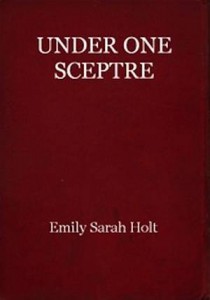A great authority once pronounced Don Quixote to be the saddest book ever written. The very word quixotic has come to imply not only unusual, but absurd action. Yet what would the world be if all the Quixotes, secular or religious, were taken out of it? There are not a few of them among the ranks of those of whom the highest authority has pronounced that the world is not worthy. They generally come to be understood at last?but it is often not till the next century. This is the story of a Don Quixote who lived, fought, and died, five hundred years ago. Like his prototype, he too tilted with the windmills and tried to liberate the captive lions. And the windmills stood firm against his spear, and the lions turned upon and tore him. It usually is so. The energy seems totally wasted?the heroism vain and lost. Yet now and then the windmill falls, discovered to be really an enchanter's castle, revealing rotten foundations and evil things: and then men remember the dead knight who gave the first stroke. Or, more often, they do not remember him. He would be thought indeed quixotic who should set before him as his life-work what Roger Mortimer did. Yet who can declare it impossible? Some day, the castle of the enchanter may fall, and the free air of heaven may blow into the dark dungeons and dispel the fetid mists. Ireland may be free with that freedom which Christ only gives, and which many an English heart longs to secure to her. But will any one remember the hand which was the first to strike the frowning portals of the fortress, and which has been dust for five hundred years in the vaults of the Abbey of Wigmore? It is well for him that he has won the better reward of his Father which is in Heaven. And we know, on the word of our Master Himself, that the unfading garland will be all the fairer because no human hands wreathed earthly bays for the head which it is to crown.
Under one sceptre, or mortimer’s mission
Sobre
Talvez você seja redirecionado para outro site












